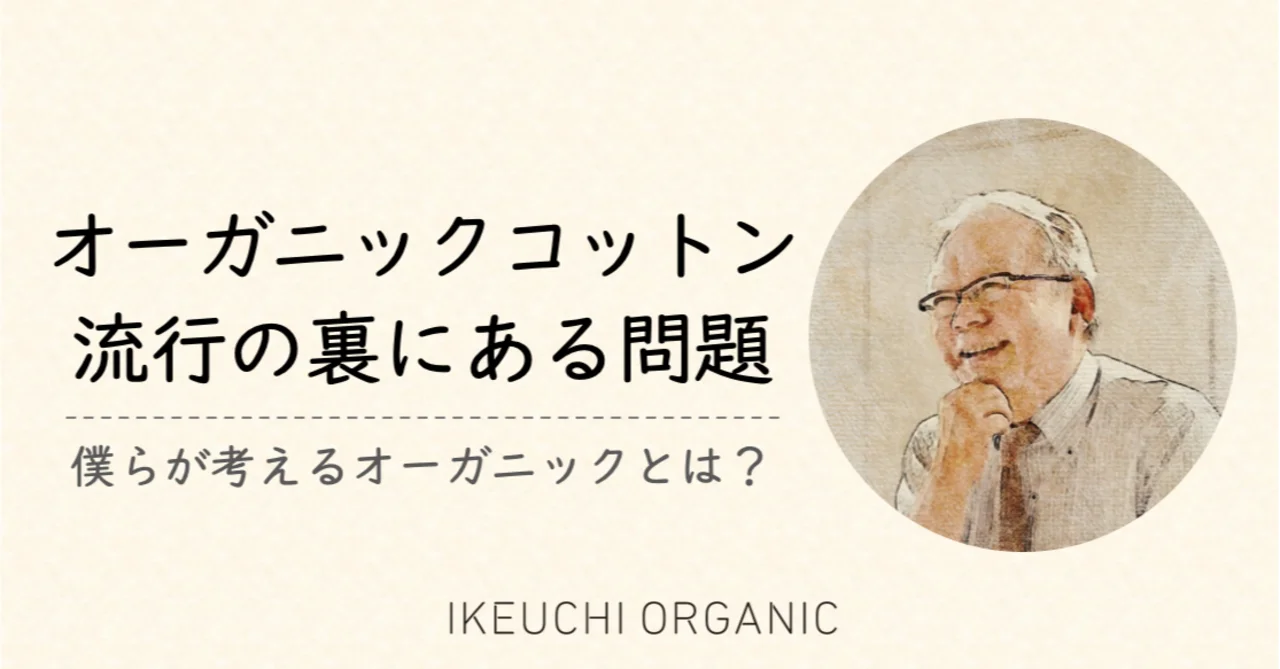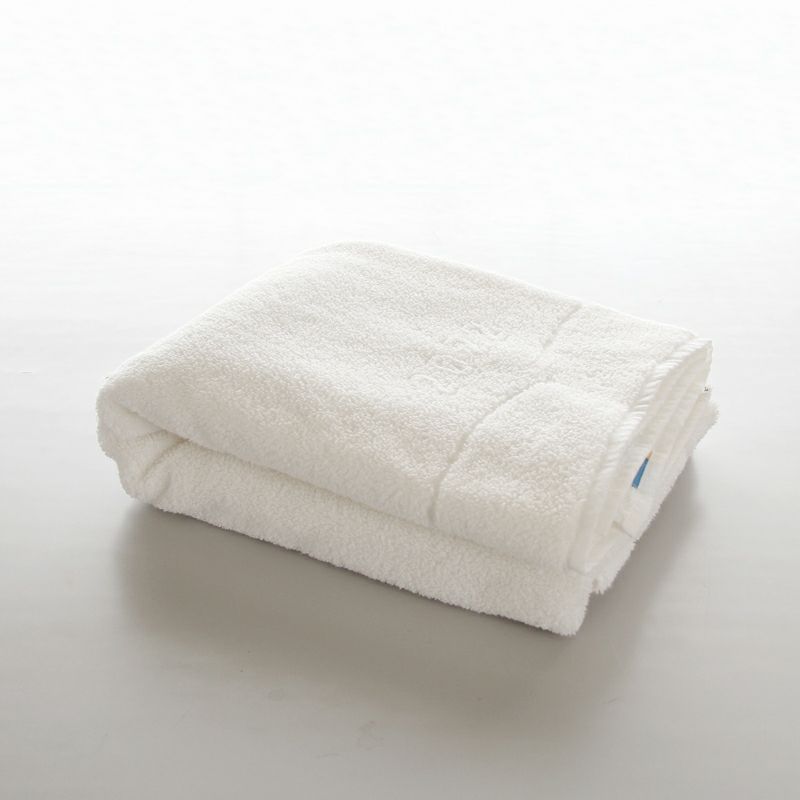タオルのお役立ちコラムやイケウチオーガニックの取り組みをご紹介いたします。
Is it really organic? The Problem Behind the Organic Cotton Craze
2022.04.01

Table of Contents
This is Ikeuchi, Representative Director.
IKEUCHI ORGANIC will implement a price revision effective April 1, 2022.
We have made every effort to minimize the price revision, but in order to protect our sustainable supply chain, we have no choice but to revise our prices.
One of the reasons for this is the rising price of organic cotton.
Demand for organic cotton is increasing rapidly all over the world, and we have heard that there are cases where it is impossible to get organic cotton in stock in some production areas. We are able to secure organic cotton thanks to the relationships of trust we have built over the years with our contract farmers, but even so, the price of organic cotton is rising.
I have been dealing with organic cotton since 1999, but I have never seen a situation like this before.
Why has the demand for organic cotton grown so much?
One reason is the growing interest in sustainability on a global scale. With many apparel companies now touting their sustainability efforts, people are buying organic cotton because they want to deal with environmentally friendly materials.
In addition, human rights issues in China’s Xinjiang Uyghur Autonomous Region have added impetus. This issue has caused companies to avoid Xinjiang cotton and turn to organic cotton, which has further boosted demand. Xinjiang cotton has always accounted for a fairly large percentage of the global cotton market, and the ripple effect is spreading.
On the other hand, the supply of organic cotton cannot be immediately increased just because demand has risen.
To begin with, what is organic cotton?
The answer to this question varies depending on the certifying organization, but IKEUCHI ORGANIC has set the following three conditions.
- The product must be grown organically, without the use of pesticides or chemical fertilizers, for at least three years. The product will not be considered organic for three years until the pesticide residues in the soil of the field have disappeared.
- The seeds must not be genetically modified seeds. Genetically modified seeds are strictly eliminated from the production line to ensure faster and more efficient harvesting of homogeneous cotton in large quantities.
- Fair trade. Cotton farmers must have safe and hygienic working conditions, be paid a fair living wage, and be able to continue to purchase cotton at a fair and stable price.
The term “organic” is based on the premise that we humans are part of nature, and that we should build a relationship with all beings as they should be. In order to grow organic cotton, it is necessary to improve the natural environment and the working environment of the farmers who make the cotton. This is different from increasing the number of production lines using machines in factories.
However, with the growing global demand for organic cotton, we often hear about organic cotton that is not really organic.
For example, an article on NewsPicks titled ” Fake products are flooding the market. The ‘Inconvenient Truth’ About Organic Cotton. I think this article highlights the realities and challenges in the world of organic cotton today.
If this situation continues, organic cotton will cease to be organic cotton as it should be. I feel a sense of crisis.
So, how can we protect organic cotton?
It is up to each and every one of us to ask ourselves, “Is that organic cotton really organic? and “Is that organic cotton really organic?
As I wrote in a previous column titled “What is important before talking about the SDGs, ” IKEUCHI ORGANIC has introduced a system that allows customers to check the production process using a QR code attached to the product. We also hold regular events to introduce organic cotton farmers and production areas to our customers.
Currently, many companies ask outside certification organizations to certify that their products are organic cotton. Many people judge whether or not a product is really made of organic cotton based on whether or not it bears the certification organization’s mark.
However, it is important to be aware of where the organic cotton comes from and under what kind of environment it was grown, rather than just saying “it looks good because it has a certification mark. Please try to be aware of these things as well.
Companies are extremely conscious of customer feedback. We have received many requests from our customers to disclose traceability, which has helped us understand the necessity of such disclosure. As more and more people become interested in traceability, the response of companies will change, and this will bring about a change in society.
Also, as you become more aware of traceability, you will understand that even organic cotton has an environmental impact.
Organic cotton is sustainable only when it is used with care.
I think it is a good thing that interest in sustainability is growing on a global scale and that the demand for organic cotton is increasing. However, it is important to be faithful to the natural environment and people, which is the foundation of organic cotton. If this spirit is left behind, there is nothing to be gained.
Organic cotton originally accounts for only 1% of the world’s cotton production. The reason for this is simple: organic cotton production is extremely labor-intensive. Even before the SDGs were coined, the organic cotton market grew as people with a high awareness of the environment and human rights purchased and supported organic cotton.
Now, we may be in a transitional period where organic cotton is moving from a niche to a standard. In a transitional period, there are many problems that come with it. I believe that these problems should be solved by both the manufacturers and the buyers of the products.
In order to pass on organic cotton to the future, we will continue to communicate what we think organic cotton should be.
Finally, as I mentioned at the beginning of this message, IKEUCHI ORGANIC will be implementing a price revision, but we have decided to keep the price of “Organic 120” unchanged so that more customers will be able to pick it up.
The bookmark of IKEUCHI products has a QR code for traceability, and we hope that this will encourage customers to think about the process by which the products are delivered to their hands.
<Editorial cooperation: Keiji Ide

Article written by
イケウチオーガニック




